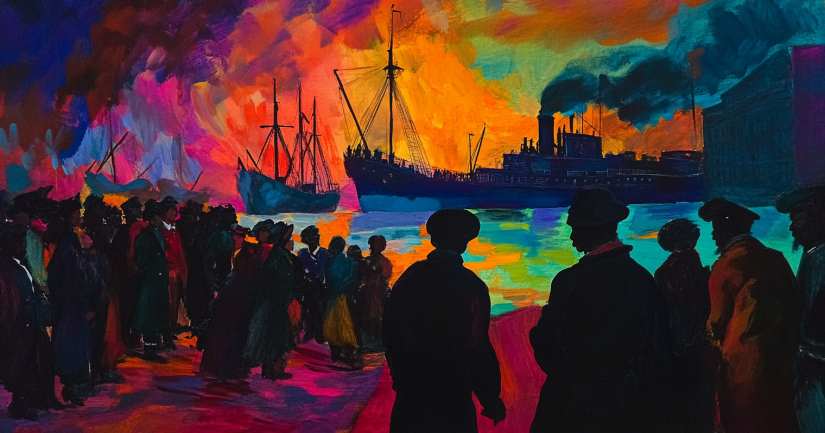
Challenge your grasp of Douglass’s inspiring story with Narrative Of The Life Of Frederick Douglass Chapter 5 Quiz, highlighting his enduring spirit. This engaging journey will take you through the pivotal moments of Douglass’s early life. As you dive into the text, you’ll uncover the stark realities of his childhood. You’ll learn about the harsh conditions he faced and the resilience he displayed. Each question will guide you through his quest for freedom and knowledge.
In this chapter, Douglass describes his move from the plantation to Baltimore. This transition marks a turning point in his life. You’ll explore how this change sparked his thirst for education. The quiz will challenge you to consider the impact of his relationships and experiences. You’ll see how these shaped his understanding of slavery and liberty.
Douglass’s story takes an even more dramatic turn in the next chapter—continue the journey with the Narrative Of The Life Of Frederick Douglass Chapter 6 Quiz. If you need to review what’s happened so far, go back to the Narrative Of The Life Of Frederick Douglass Chapter 4 Quiz. And when you’re ready to put all your knowledge to the test, take the Narrative of the Life of Frederick Douglass Full Book Quiz.
Now’s Your Turn – Narrative Of The Life Of Frederick Douglass Chapter 05 Quiz
By the end, you’ll have gained a deeper appreciation for Douglass’s courage and determination. This quiz not only tests your knowledge but also enriches your understanding of his narrative. Are you ready to delve into his compelling story and discover the lessons hidden within?Test your knowledge with: Narrative of the Life of Frederick Douglass Quizzes!
What Happened – Narrative Of The Life Of Frederick Douglass Chapter 5
Frederick Douglass describes his early childhood on Colonel Lloyd’s plantation. He lived with his grandmother, Betty Bailey, on a small farm away from the main plantation. At the age of seven or eight, he was sent to live at the main plantation called the Great House Farm. This was a significant change for Douglass.
He was chosen to go to Baltimore to live with Hugh Auld and his wife, Sophia. Before leaving, Douglass cleaned himself thoroughly and was given a pair of trousers. This was a new experience for him as he had never worn trousers before. He was excited about the journey to Baltimore, even though he was leaving his family behind.
Douglass traveled to Baltimore by ship. The captain and crew treated him kindly. Upon arrival, he was warmly welcomed by the Aulds. Sophia Auld, unlike other slave owners, was kind to him at first. She even began to teach him the alphabet. This was a turning point in Douglass’s life because it opened the door to education.
Douglass noticed the difference between life in the city and the plantation. City slaves were treated better than those on plantations. He realized the importance of education and how it could lead to freedom. This realization marked the beginning of his journey towards self-education and his eventual escape from slavery.
Narrative Of The Life Of Frederick Douglass Chapter 5 – Quotes
“I had known what it was to be kindly treated; they had known nothing of the kind.” – Frederick Douglass, ‘Contrasting his brief experiences of kindness with the constant cruelty endured by other slaves.’
“I was now, for the first time in my life, a field hand.” – Frederick Douglass, ‘Describing the transition to more grueling work in the fields after leaving the relative comfort of Colonel Lloyd’s plantation.’
“The ties that ordinarily bind children to their homes were all suspended in my case.” – Frederick Douglass, ‘Reflecting on the lack of familial bonds and stability in his life as a child slave.’
Narrative Of The Life Of Frederick Douglass Chapter 5 – FAQ
Chapter 5 primarily describes Frederick Douglass’s early childhood experiences, particularly his transition from life on the plantation to living in Baltimore. This chapter highlights the significant changes in Douglass’s life, which set the stage for his developing awareness of the injustices of slavery.
Moving to Baltimore marks a pivotal moment in Douglass’s life. The change exposes him to a different environment where he experiences a degree of freedom previously unknown to him. This transition plays a crucial role in shaping his aspirations and fuels his desire for literacy and self-improvement.
The Aulds, particularly Mrs. Auld, initially play a positive role by introducing Douglass to reading. Although Mrs. Auld later changes her stance under the influence of societal norms, her initial kindness and willingness to teach Douglass the alphabet ignite his lifelong pursuit of education and freedom.
Literacy emerges as a symbol of empowerment and resistance in this chapter. Douglass’s exposure to reading opens his eyes to the possibilities beyond slavery. It becomes a tool through which he begins to understand the broader social and political dynamics of his condition, ultimately fueling his quest for liberation.
Douglass conveys a mix of emotions about leaving the plantation. On one hand, he feels a sense of relief and excitement about the opportunities in Baltimore. On the other hand, there is a lingering sadness and uncertainty about leaving familiar surroundings and the people he knows, highlighting the complexity of his situation.
